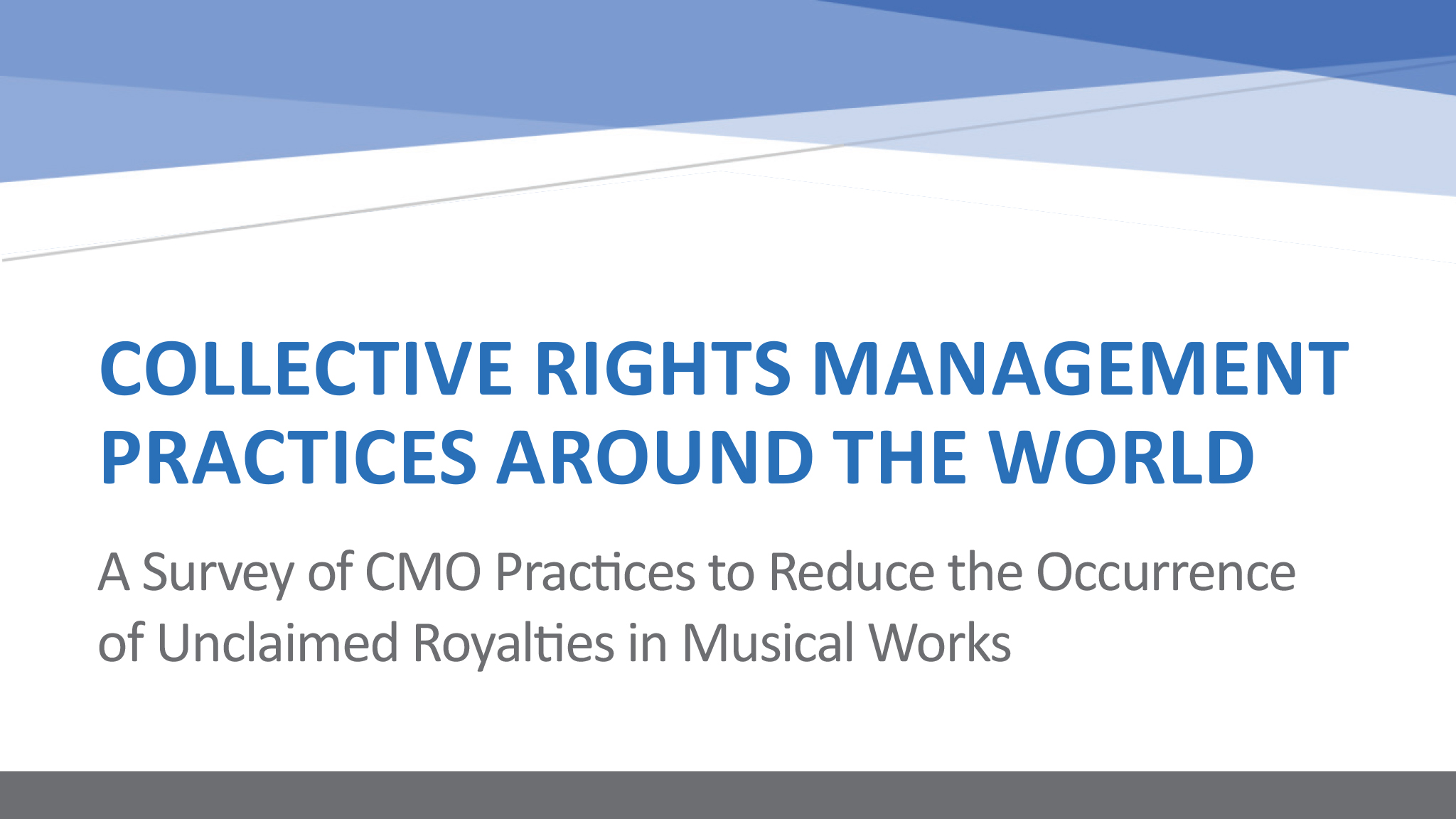CMO Report
Collective Rights Management Practices Around the World: A Survey of CMO Practices to Reduce the Occurrence of Unclaimed Royalties in Musical Works
By Susan Butler

The Copyright Office engaged Susan Butler, established music business journalist and publisher of Music Confidential, to provide a factual report detailing certain royalty distribution practices and, to a limited extent, related matching activities of global collective management organizations (CMOs). Ms. Butler’s report, along with the Office’s December 2019 symposium, are provided as baseline informational material for the public to reference in replying to a notice of inquiry seeking public comment in connection with the Office’s policy study regarding best practices the mechanical licensing collective (MLC) may implement to reduce the overall incidence of unclaimed royalties.
In preparing her report, Ms. Butler surveyed and interviewed select CMOs around the world that represent musical works (whether performing rights, mechanical rights, or both) or public performance rights in recordings (neighboring rights). Her report discusses the ways that the select CMOs obtain and process ownership information, distribute royalties for unmatched or unclaimed works, and identify previously unidentified copyright owners. Some of the topics that the report discusses include:
- Notable differences in how the MLC will operate, compared to the existing CMO network, including that:
- the MLC will be responsible for administering licenses limited to a singular and narrow right concerning one type of work (musical works) and one type of use (the blanket mechanical license for digital phonorecord deliveries), while CMOs may represent works for many different types of uses and frequently many different types of authors; and
- the MLC does not have members who choose to join the collective, while CMOs are membership- or affiliate-based.
- How CMOs obtain information from different sources, including songwriter or performer members through work or performance registrations or notices, publisher or record label members through work or recording registrations or notices, agreements with other CMOs (domestic or foreign), and with existing music ownership databases or database networks.
- The types of information that CMOs may require or recommend be provided related to musical works or sound recordings, including to facilitate payment of royalties.
- Instances where CMOs may not process usage reports and may instead resort to sampling (also called using a “proxy” or “benchmark”) to pay certain royalties.
- Reasons why CMOs may not be able to link a recording title reported by a digital music provider in a usage report to a specific work or specific rights holders to be able to distribute money to those rights holders.
- Following routine automated and manual methods to match works to recordings and rights holders, additional methods that CMOs may implement to identify and locate works and rights holders, including by sharing lists of unidentified works with members and others, inquiries from rightsholders, posting lists on the CMO’s website or on a claiming portal, placing advertisements in official journals or newspapers, and use of audio fingerprinting.
- Quality assurance measures that CMOs may employ when engaged in automated and manual matching efforts.
- The various distribution rules that the select CMOs developed over decades, including the different factors or considerations the CMO uses to create these rules, and in particular, distribution rules that have developed with respect to the distribution of royalties accrued for unidentified or unclaimed works.
This report contains additional insights regarding the operation of CMOs throughout the world. The Copyright Office is confident that these observations may aid the public as they consider issues with respect to the Office’s Unclaimed Royalties Study.
The Office thanks Ms. Butler for her thoughtful and thorough work on this report.